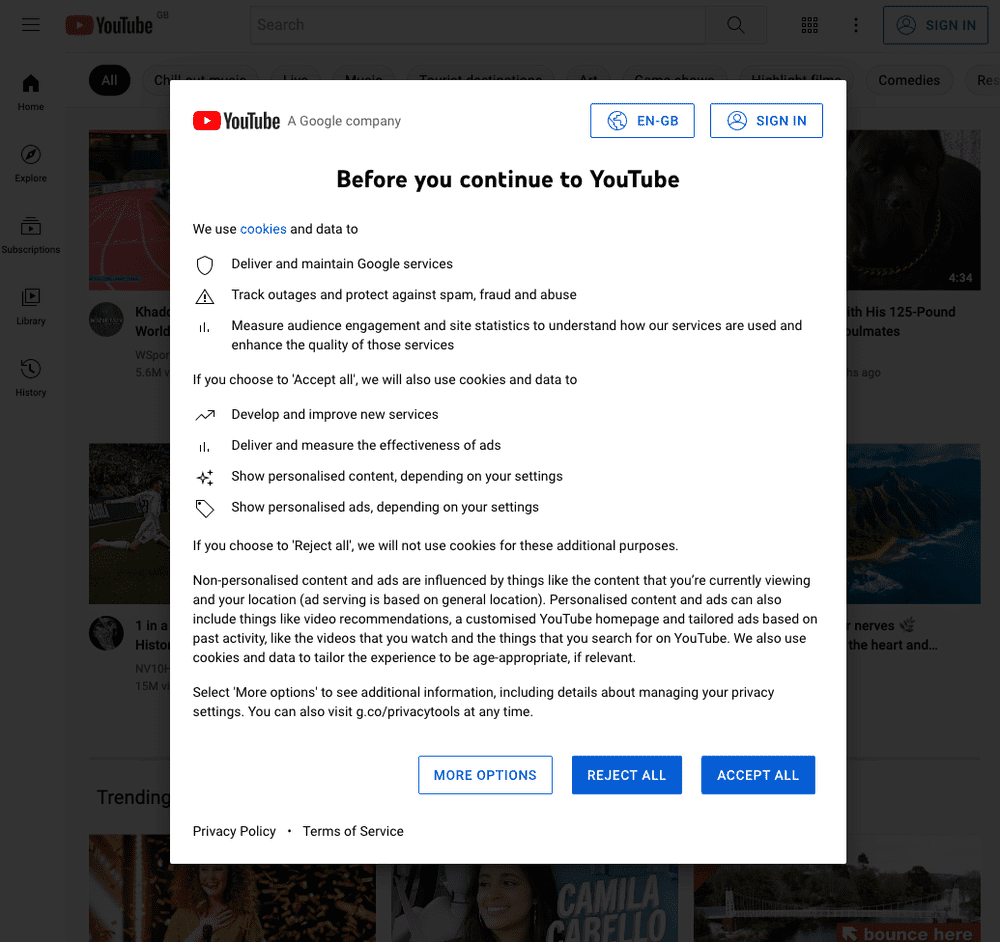Google revamped the cookie tracking consent form on YouTube and Google Search. A new button allows users to reject all tracking with a single click.
In January, Google was fined €150 million for a violation of the GDPR. The French privacy authority (CNIL) found that users of youtube.fr and google.fr weren’t provided with an adequate way to refuse all cookie tracking. Rejecting cookies took several actions, while consent was given with a single click.
“We respect users’ privacy and actively cooperate with the CNIL”, Google said at the time. The promise has been kept. Google will renew its cookie tracking consent form for all European users, starting in France.
The form includes a new button: ‘Reject all’, as shown below. Tracking can be refused with a single action. The form will only open for visitors who are not logged into an account. If you visit YouTube or Google Search while logged in, you’ll have to navigate to the privacy settings instead.

“We’ve kicked off the launch in France and will be extending this experience across the rest of the European Economic Area, the U.K. and Switzerland”, said Sammit Adhya, Product Manager, Privacy, Safety & Security at Google. The organization emphasises that its cookie backend was overhauled, but doesn’t disclose technical details.
Google Analytics
Google regularly clashes with European privacy authorities. Near the end of 2021, an Austrian company was convicted for using Google Analytics. Some versions of Analytics exchange personal data with the US, which violates the GDPR. Ultimately, Analytics’ users are held responsible, which is why the software is banned under certain circumstances.
In March 2022, Google announced a solution. Analytics users will be forced to switch to Google Analytics 4 by 1 July 2023. This version does not collect IP addresses
Later in March, the European Commission announced that the European Union and the United States are developing a new framework for legal data transfers between the EU and the US. The framework will be introduced shortly. Software providers gain a way to exchange data between the EU and US without breaking laws on one of the two continents. Analytics users will be protected from liability.
Tip: Google launches Topics API, new alternative to cookies and FLoC
